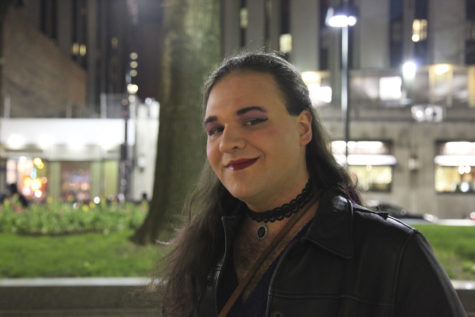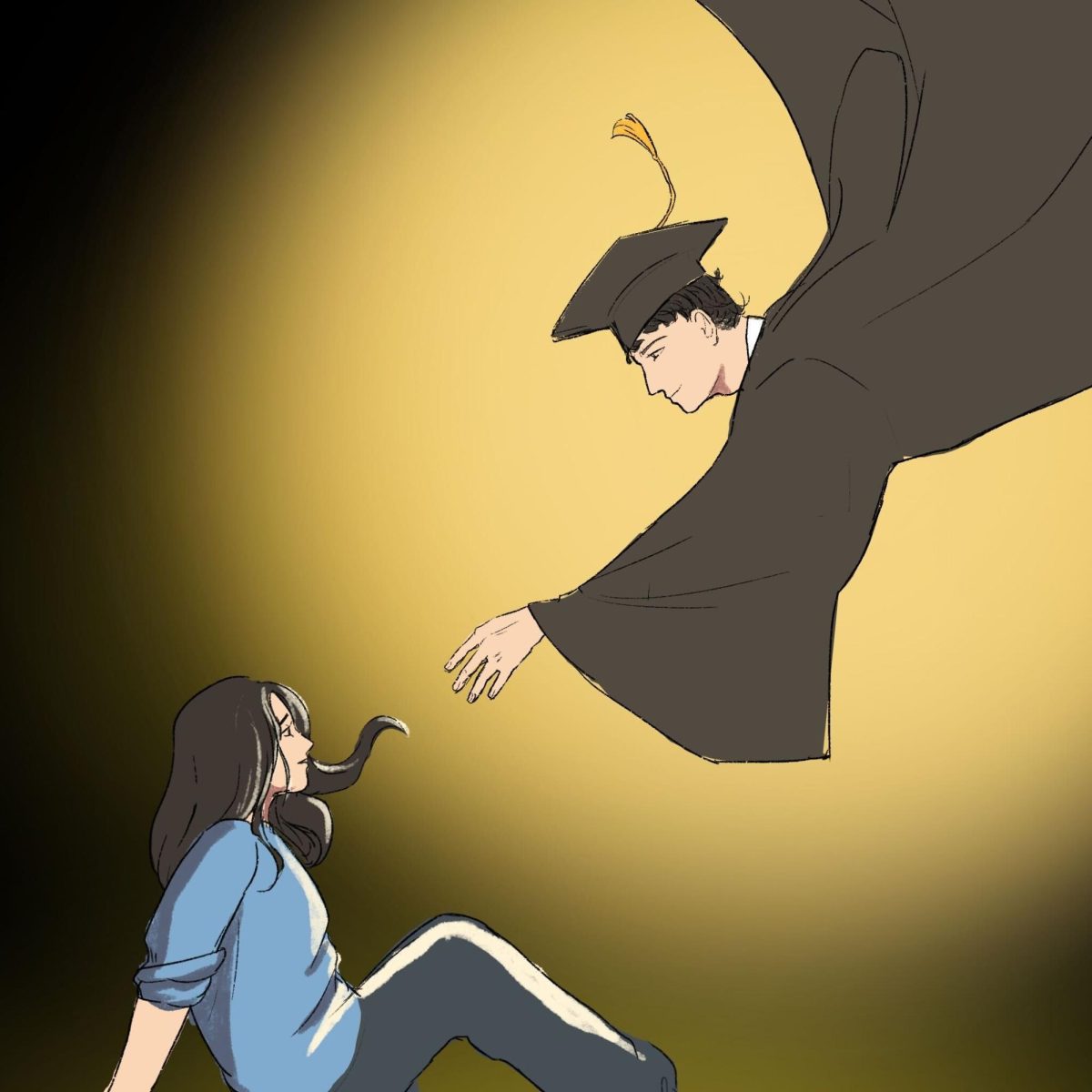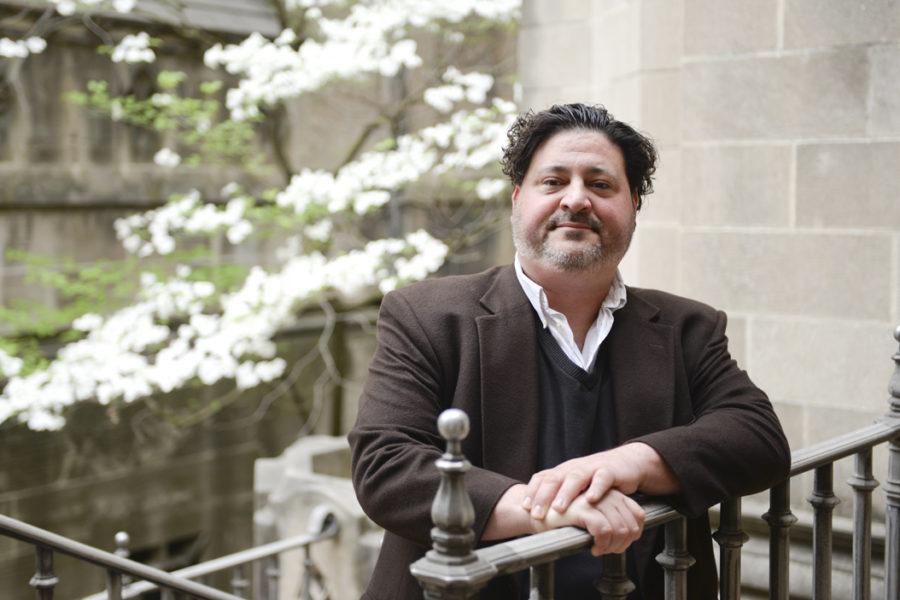As a closeted gay man in a Presbyterian church north of Pittsburgh, a young Wil Forrest often felt alienated by his congregation’s narrow interpretations of scripture. Sunday sermons preached that there were limits to God’s love — a message that did not line up with his understanding of the Bible.
Ultra-conservative Christian churches and strict readings of Judeo-Christian teachings have earned religious institutions a reputation for being unaccepting of and even hostile toward the LGBTQ+ community.
“I was not raised in a theologically inclusive environment and that was an issue for me growing up in terms of my understanding of my relationship with God and my own salvation,” Forrest said. “I wasn’t able to work out those things until I was older and able to gain different theological perspectives.”
But at the East Liberty Presbyterian Church — where Forrest has found a home — the LGBTQ+ community is not only accepted, but celebrated. Known as the Cathedral of Hope, perched on the corner of Penn and Highland avenues, ELPC is one of many congregations across various faiths challenging the pervading misconception that being LGBTQ+ and religious are mutually exclusive.
An inclusive community has been a cornerstone of the ELPC since before Forrest, 47, joined the congregation more than 12 years ago. In the lawn outside the gargantuan stone building sits a digital billboard flashing the church’s slogan, “Progressive, inclusive, diverse” — a fitting juxtaposition to the gothic architecture that dominates the East End’s skyline.
Forrest, whose small office on the second floor is plastered with rainbow stickers and colorful posters leaning up against the walls, is an ordained deacon and staff member at the church who has been openly gay since coming out in his early 20s. One of his responsibilities is acting as the coordinator for the LGBTQ Ministry, which started in 2013.
The ministry often gets together for meals and to have a monthly gathering of Bible study, reading a book together or listening to a speaker. During the Spiritual Gathering, members of the ministry meet with a focus: “Learning to Accept God’s Love,” for example.
No matter what the activity, the monthly session always closes with members telling stories of their struggles with being both LGBTQ+ and religious, and a discussion in which other members offer advice and share similar stories.
The ELPC’s LGBTQ Ministry started after some members approached Forrest saying they either did not know how to have a relationship with the church or that they had complex personal histories with religion — a struggle he’s familiar with.
“While we’re inclusive, we realize there are other things we could be talking about,” Forrest said. “The spiritual walk is a little more complex than just saying, ‘You’re accepted, so now let’s move on.’”

What Forrest does on a weekly and monthly basis with members of his congregation, others are exploring outside of the church setting. Professor Rachel Kranson and the religious studies department followed a more academic route, addressing the tenuous territory inhabited by religious members of the LGBTQ+ community.
The religious studies department ran a series twice this spring, called Queering Religion, which explored the diverse ways in which religions can construct sexuality and some of the ways that popular assumptions about religion are shaped by preconceptions of normative sexuality.
“The purpose of this series is to help us think through the ways in which categories like sexuality and religion not only intersect with one another, but also constitute one another,” Kranson said in an email.
Through student panels and visiting speakers, the series questioned the ways in which sexuality and religion shape each other.
“We want to have a better understanding of how these entanglements play out in political and interpersonal ways,” Kranson said in an email.
Kranson and Benjamin Gordon — another professor with the University’s department of religious studies — originally orchestrated the series. Kranson is a core faculty member of the Jewish studies program and gender, sexuality and women’s studies, and Gordon is the coordinator of the Jewish studies certificate.
A 2015 demographic study “America’s Changing Religious Landscape” from the Pew Research Center found that a majority of Americans who identify as gay, lesbian or bisexual hold a religious affiliation.
Although 41 percent of the study’s respondents are unaffiliated with any religion, of those LGB respondents, 48 percent identify as Christian and 11 percent identify with faiths other than Christianity.
Kranson said that she and her colleagues originally thought to organize the series after the shooting at the Orlando nightclub, Pulse, and the coverage of the tragedy that followed.
They were disturbed by aspects of the shooting’s coverage, specifically the ways in which nativist Christians were using Pulse to vilify Islam, portraying it as an extreme and intolerant religion — “an expression of Muslim angst over homosexuality” — even though those same Christian groups actively, and sometimes violently, oppose gay rights.
“We were also struck by how this portrayal of the Pulse nightclub tragedy assumed religion to be necessarily antithetical to homosexuality, and erased the possibility that individuals could identify both as deeply religious and as queer,” Kranson said.
Kranson said in an email that the series offered an opportunity for members of the campus community who identify as both queer and religious to share their thoughts and experiences.
Answers to these questions not only vary across multiple faiths, but often vary across the denominations within a particular faith. Exploring those questions within Judaism is a special interest of BD Wahlberg — a Pitt graduate who identifies as non-binary and has plans to become a rabbi. They were one of the six individuals on the Student Workshop panel March 30.
“I grew up Reform, which is a sect of Judaism which recognizes that the Torah was written by human hands,” Wahlberg said. “And that you have to be able to adapt for the modern world and that you have to find the Judaism that’s most meaningful to you.”
Reform Judaism is a sect that teaches equality across genders with female leaders and teachers. Part of the Reform platform, Wahlberg said, is support for LGBTQ+ people. The dreams that religious leaders have for their faith, however, do not always line up with the experience in each individual congregation.
Wahlberg taught Hebrew and Sunday school at their temple from high school throughout their time in college. After six years of teaching, they were given their own classroom where they made meaningful connections with their students.
That changed after they started to transition their appearance to fully express their non-binary identity.
“The most I had done before asking to wear dresses rather than pants was to always have my nails painted,” Wahlberg said in an email. “No one had a stated problem with [painting my] nails and growing my hair out, which I consider parts of my transition.”
It was when Wahlberg asked to be allowed to wear dresses and skirts while teaching that there was an issue.
“I said, ‘Hey, I’d like to wear a dress when I teach, I can’t be doing this pants thing anymore, it actually hurts me to hide my identity here.’ [The school’s administrators] said, ‘Well, you can’t teach and do that, not here.’” Wahlberg said. “Which really hurt because it was Reform, it was a Reform community.”
Wahlberg’s time teaching their students lessons on the Talmud came to an end after being told they could not teach and express a key part of their identity — their gender.
Having an experience like Wahlberg’s turns some people away from organized religion. Repairing the ideas people have about their faith often drives Forrest’s ministry at the ELPC, as some of the people who are members of his congregation had previous negative experiences with Christianity.
“They grew up being a silent LGBTQ person in church where they could only share part of themselves, and they kept parts hidden,” Forrest said. “And many of them heard very derogatory and hateful messages that were not inclusive.”
Forrest says that he sees many LGBTQ+ members of his congregation remain suspicious of religion.
“One of the things that’s most challenging for me emotionally is how hard it is to see some people after we built months and even years of a relationship still expect a bait and switch,” Forrest said. “That we say, ‘We love you, come on in, build a relationship with us,’ and then at some point we are going to try to change you to not be LGBTQ or ask you to deny that part of yourself.”
Wahlberg will always be hurt by their temple’s decision to keep them from teaching, but said they will not be deterred from pursuing a graduate-level education in their faith and becoming a rabbi. They desire to take the teaching skills they developed and open a space for dialogue where people can ask questions about sexual and gender identity in a religious context.
Series like Queering Religion and ministries like ELPC’s are offering a safe haven for people who don’t want to give up important parts of themselves — be it their relationship with God or with their own identity.
“Education is so important,” Wahlberg said. “When you teach a child, you teach their child and so on until the end of generation. So if you change attitudes from a young age, you change them for a long time.”



